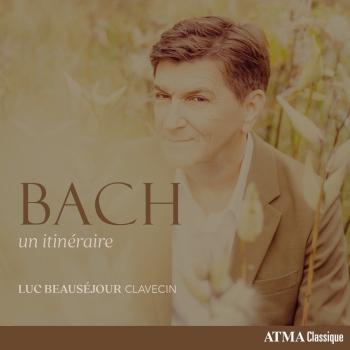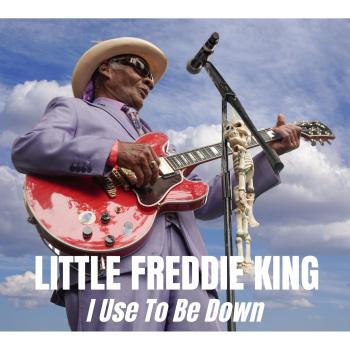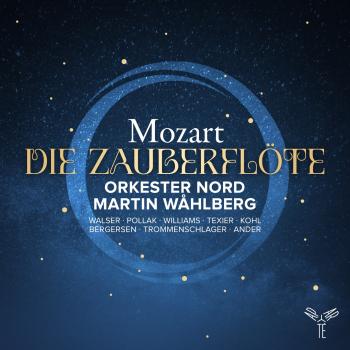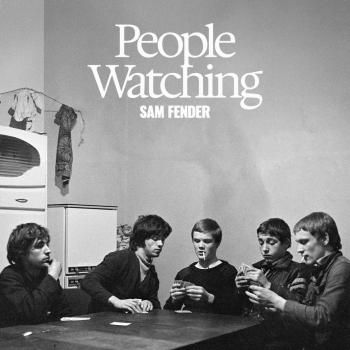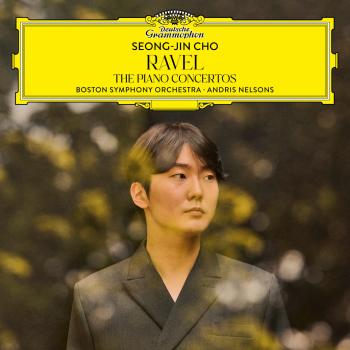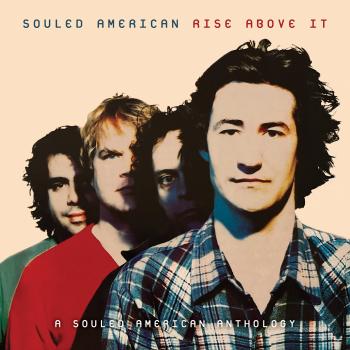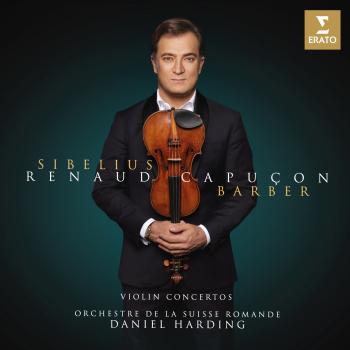
Dvorak: Symphony No. 9 New World / Varèse: Amériques (Live) Seattle Symphony Orchestra & Ludovic Morlot
Album info
Album-Release:
2015
HRA-Release:
02.06.2015
Label: Seattle Symphony Media
Genre: Classical
Subgenre: Orchestral
Artist: Seattle Symphony Orchestra & Ludovic Morlot
Composer: Antonín Dvořák (1841–1904), Edgard Varèse (1883-1965)
Album including Album cover Booklet (PDF)
- Antonín Dvořák (1841–1904): Symphony No. 9 in E minor, Op. 95, -From the New World-
- 1 I. Adagio - Allegro molto 12:04
- 2 II. Largo 12:22
- 3 III. Molto vivace 07:39
- 4 IV. Allegro con fuoco 11:45
- Edgard Varèse (1883-1965): Amériques
- 5 Amériques (1929 Version by Chou Wen-chung) 23:52
Info for Dvorak: Symphony No. 9 New World / Varèse: Amériques (Live)
Ludovic Morlot and the Seattle Symphony release the sixth recording on their Grammy-nominated in-house label, Seattle Symphony Media. This album features the pairing of works that represent two European composers’ first impressions of the New World: Antonín Dvořák’s beloved Symphony No. 9 in E minor, “From the New World” and Edgard Varèse’s lesser known yet defining orchestral piece Amériques.
The juxtaposition of these two works is another example of the Seattle Symphony’s highly successful programming philosophy under Ludovic Morlot — contrasting repertoire masterpieces with lesser-known sounds of modernism and beyond. Dvořák’s Symphony No. 9 was composed while the composer lived in New York City from 1892 to 1895, and is inspired by spirituals and Native American music. By contrast, Varèse’s Amériques is influenced by the sounds of urban life and displays the composer at his most primal. Written only 30 years apart, Symphony No. 9 looks back at the Romantic era, while Amériques is an incisive statement looking forward to the modern era.
Seattle Symphony
Ludovic Morlot, conductor
Recorded live in concert at the S. Mark Taper Foundation Auditorium, Benaroya Hall, Seattle, Washington, on September 29 & October 1, 2011 (Varèse), and October 2–4, 2014 (Dvořák)
Seattle Symphony Orchestra
under the leadership of Music Director Ludovic Morlot, is a vital part of the Pacific Northwest cultural scene and is recognized for its extraordinary performances, programming, recordings and community engagement. With a dedicated subscriber base of more than 25,000 patrons, the Symphony performs or presents over 200 performances annually to an audience of more than 290,000 people.
Since its first performance on December 29, 1903, the Seattle Symphony has held a unique place in the world of symphonic music. During its formative years, it was the charismatic Sir Thomas Beecham who most developed the Orchestra's skill and reputation. In 1954 Milton Katims began his 22-year tenure as Music Director, greatly expanding the Symphony's education programs. Rainer Miedél, Music Director from 1976 until his death in 1983, led the Orchestra on its first European tour in 1980. Gerard Schwarz was appointed Music Advisor in 1983, and Music Director in 1985. During his 26-year tenure, the Seattle Symphony made more than 140 recordings and garnered 12 Grammy nominations and two Emmy Awards.
The Orchestra is now under the artistic leadership of Ludovic Morlot, one of the leading conductors of his generation. During 2011–2012, Morlot’s inaugural season, the Symphony enjoyed critical acclaim for its blockbuster performances of Stravinsky’s The Rite of Spring, Berlioz’s The Damnation of Faust, and Hols’s The Planets; the inaugural presentation of Sonic Evolution, a commissioning project designed by Morlot to feature new works honoring Seattle’s musical heritage; and a season-long exploration of the music of French composer Henri Dutilleux. Morlot’s second season, 2012–2013, was marked with further critical success, including sell-out performances of Britten’s War Requiem, RachFest, an immensely popular cycle of Rachmaninov’s Piano Concertos, and the Seattle Symphony’s first-ever performance of Messiaen’s Turangalîla.
In 1998 the Seattle Symphony inaugurated its new home, Benaroya Hall, noted for its architectural and acoustical splendor. Three years later, the Orchestra opened Soundbridge Seattle Symphony Music Discovery Center, where people of all ages explore the world of symphonic music through exhibits, classes and live music presentations. The Symphony’s education programs, alongside its nationally recognized community engagement programs, bring classical music to nearly 50,000 people of all ages each year.
Ludovic Morlot
As the Seattle Symphony’s Music Director, Ludovic Morlot has been received with extraordinary enthusiasm by musicians and audiences alike, who have praised him for his deeply musical interpretations, his innovative programming and his focus on community collaboration. Morlot is also Chief Conductor of La Monnaie, one of Europe’s most important opera houses.
In the U.S. Morlot has conducted the Boston Symphony Orchestra, Chicago Symphony Orchestra, Los Angeles Philharmonic, New York Philharmonic, Philadelphia Orchestra and Pittsburgh Symphony. Additionally, he has conducted the BBC Scottish Symphony Orchestra, Czech Philharmonic, Dresden Staatskapelle, Israel Philharmonic, Montreal Symphony Orchestra, Orchestre National de France, Royal Concertgebouw Orchestra, Rundfunk- Sinfonieorchester Berlin, Saito-Kinen Festival Orchestra and Tonhalle Orchestra (Zürich).
Trained as a violinist, Morlot studied conducting at the Royal Academy of Music in London and then at the Royal College of Music as recipient of the Norman del Mar Conducting Fellowship. Morlot was elected an Associate of the Royal Academy of Music in 2007 in recognition of his significant contributions to music. He is Chair of Orchestral Conducting Studies at the University of Washington School of Music.
Booklet for Dvorak: Symphony No. 9 New World / Varèse: Amériques (Live)

